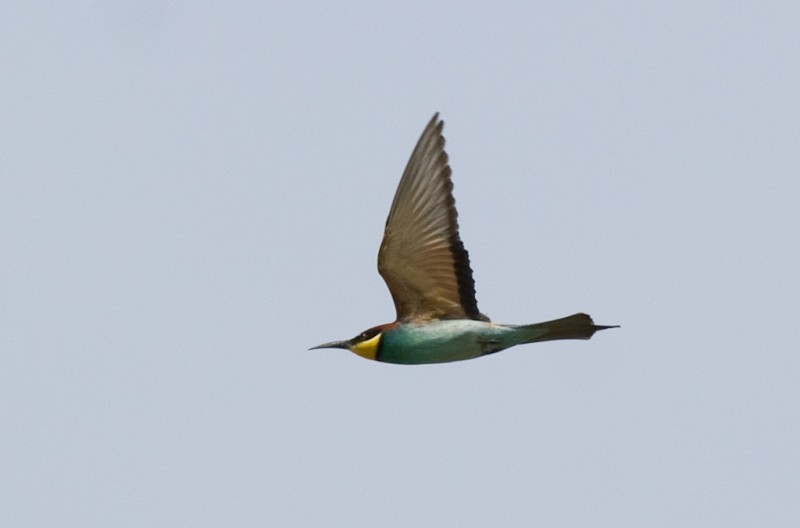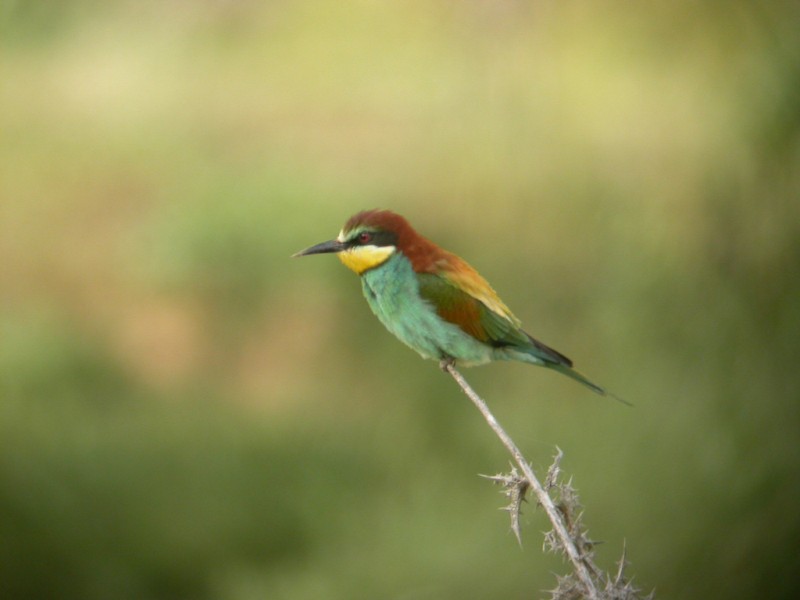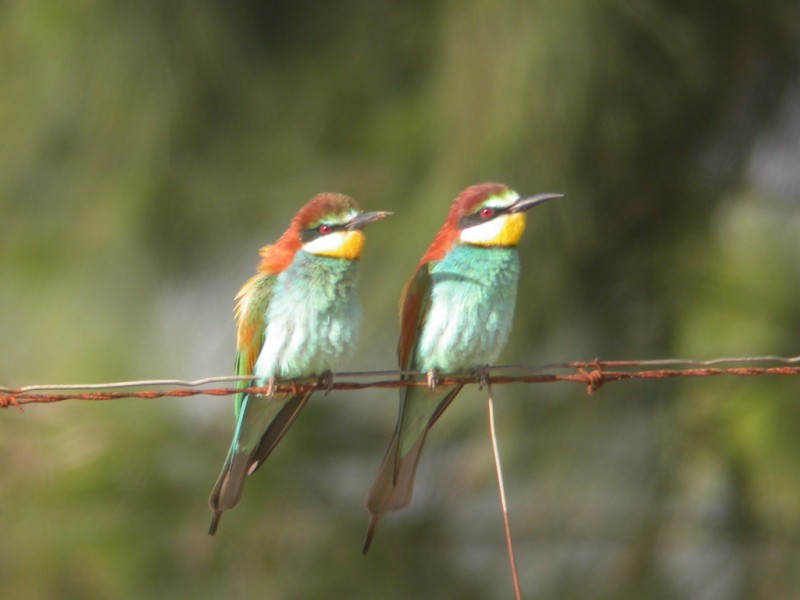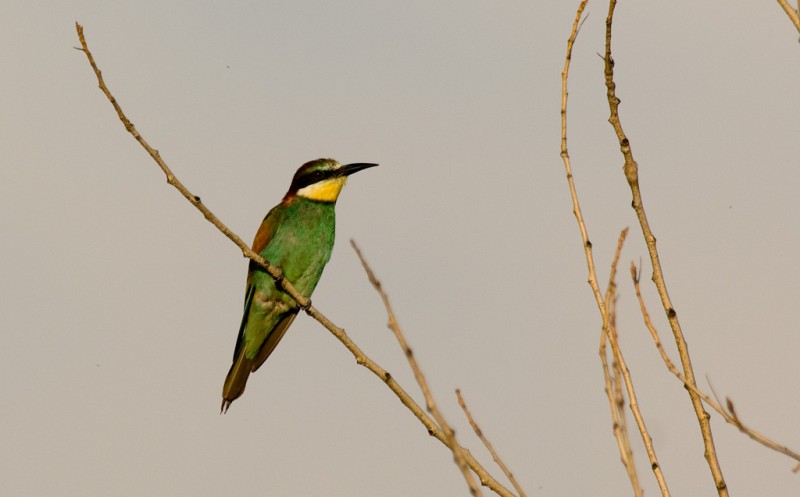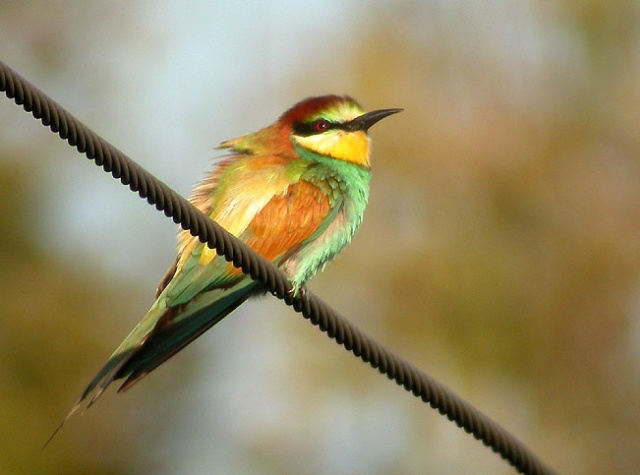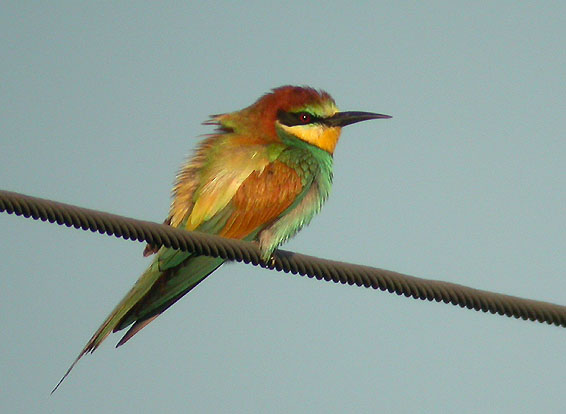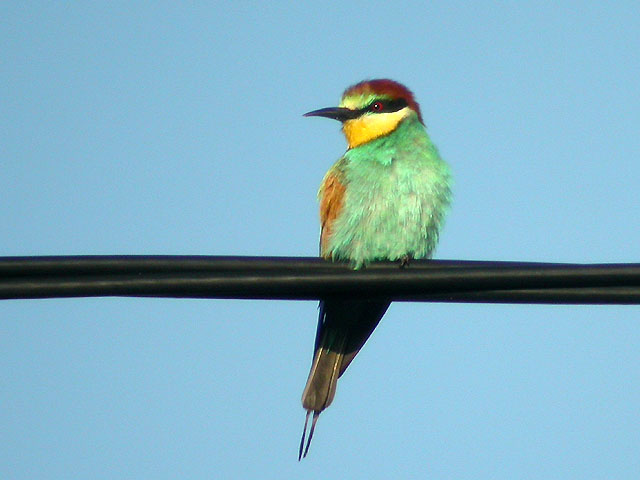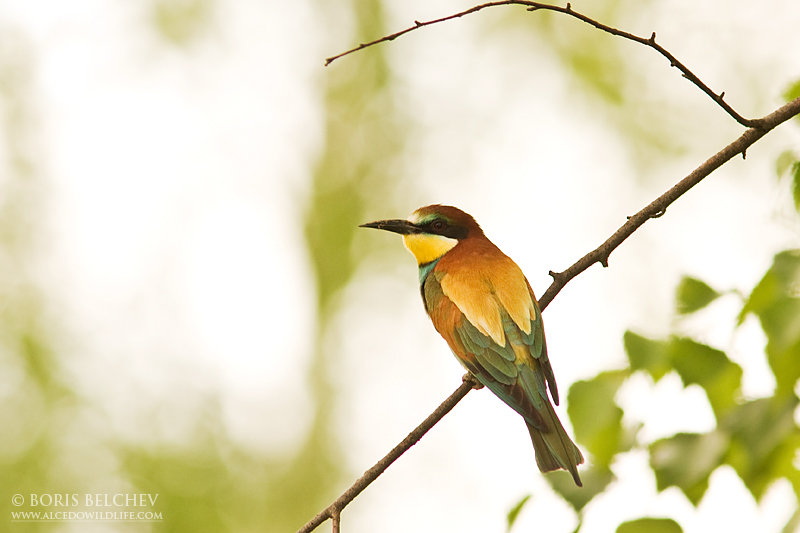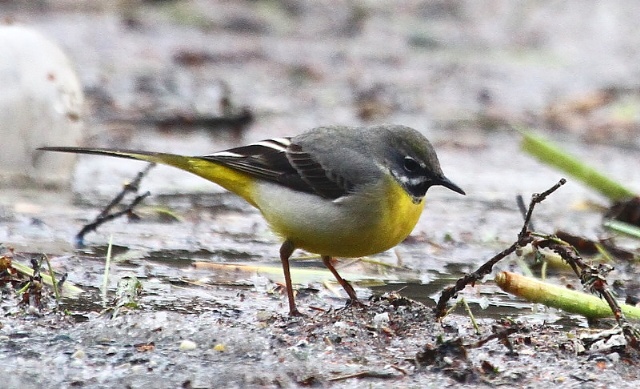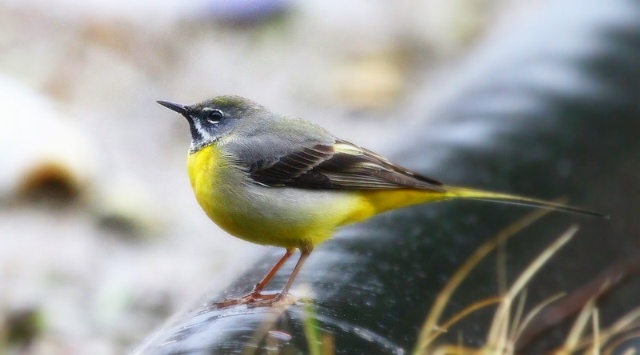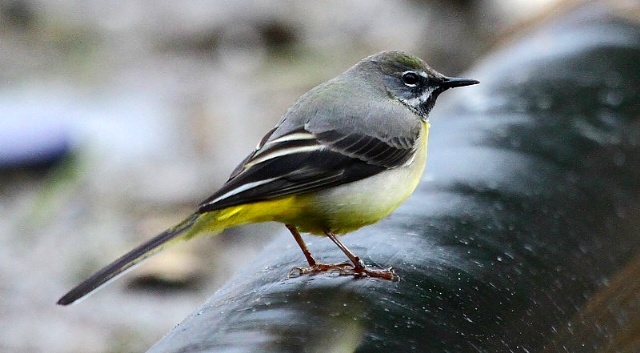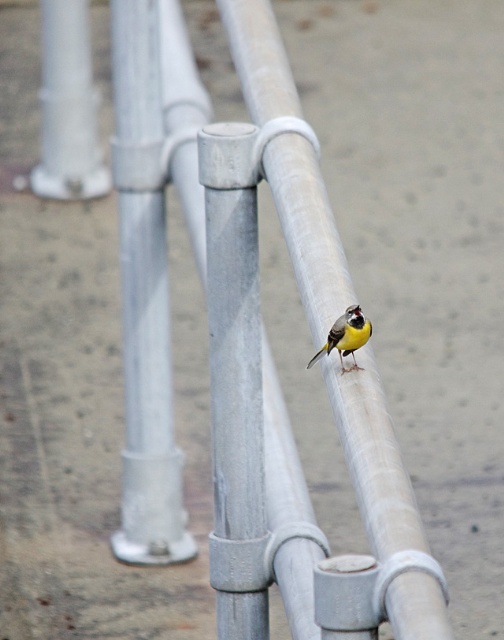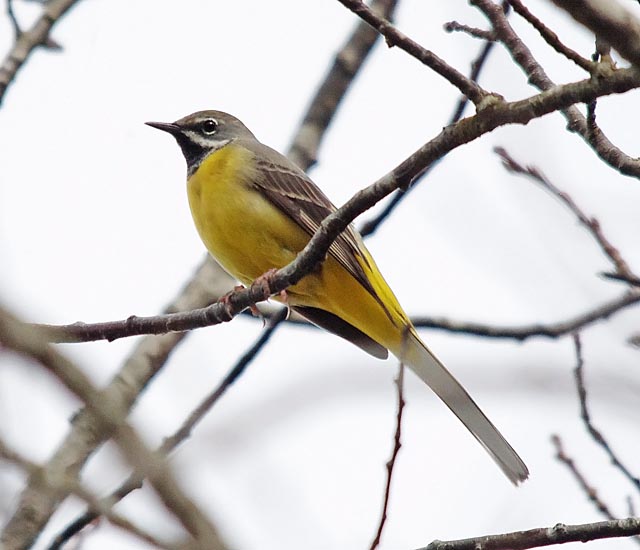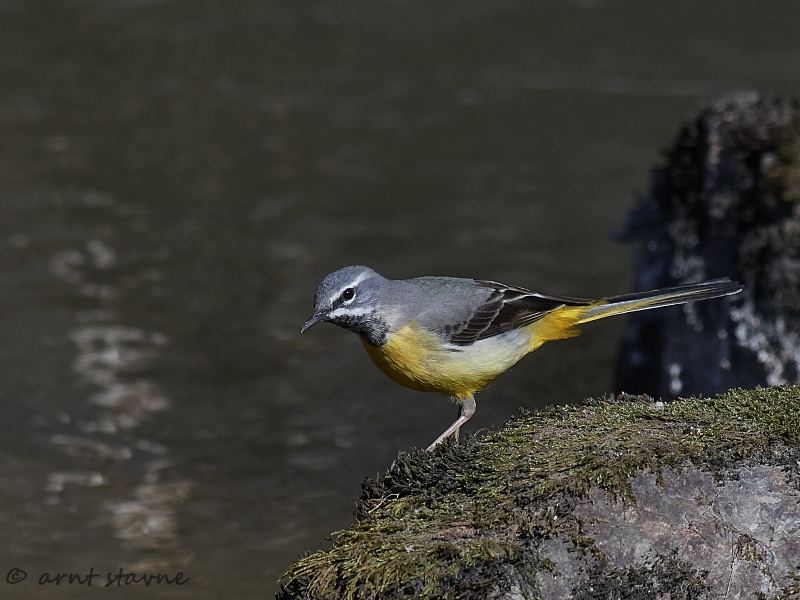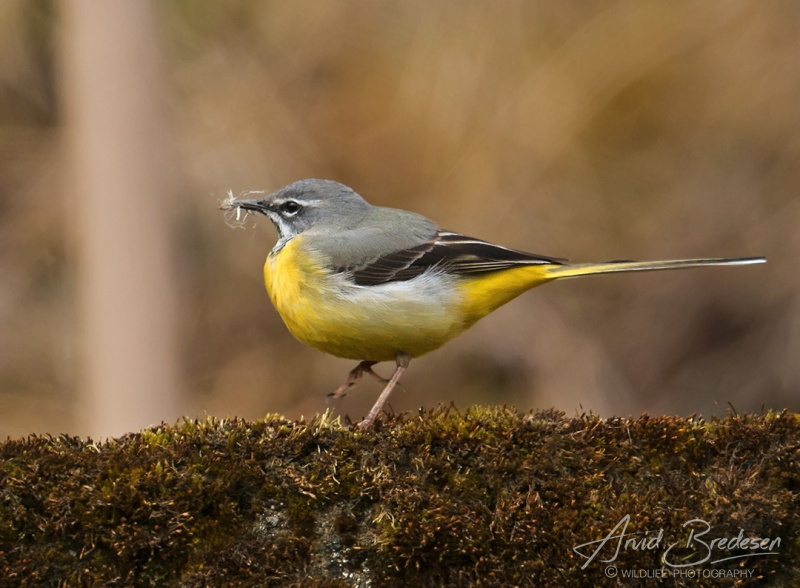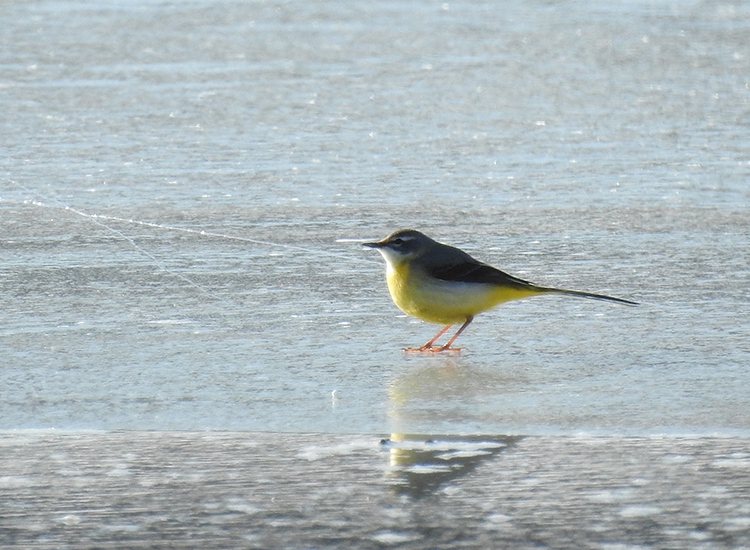Bee-eater (Merops apiaster)
Grey Wagtail (Motacilla cinerea)
Unmistakable if seen well. Stunning, bright yellow throat and turquoise underparts. Upperside of wings multicoloured with noticeable light buff shoulders, as opposed to other Bee-eaters in the region. In flight the underwing shows a black trailing edge, which on the secondaries becomes broader closer to the body . Often flies high and then reveals itself only by its flight call.
Sound:Quite vocal in all activities. Call a short and soft "pju" often quickly repeated forming multi-syllabic, rolling phrases.
Contact call:
Distribution:
Wikipedia: map (se also Xeno-canto below)
Ecology:Birdlife ecology
Links:
Observation.org Latest observations
Image search Flickr NB! May give other species
CCElegant and very long-tailed wagtail. Vent always bright yellow in all plumages. Legs pinkish flesh-coloured, not black. Wings with single white bar, visible both from below and above. Male with black throat in summer. Constantly wags tail, often in a more horizontal posture than congeners. Flight more attenuated and more bounding than in other wagtails. Attached to water and streams.
Sound:Contact call short, metallic and with a clipped ending. Often disyllabic, "tzeet-tzeet", with each syllable more separated than in White Wagtail, and timbre more "dirty". Song simple but variable. Often starts with the contact call, followed by short melodic phrases. Sometimes with more elaborate song-flight like White Wagtail.
Contact call, flight call:
Distribution:
Wikipedia: map (se also Xeno-canto below)
Ecology:Birdlife ecology
Links:
Observation.org Latest observations
Image search Flickr NB! May give other species
CC
 English
English Albanian
Albanian
 Armenian
Armenian
 Bulgarian
Bulgarian
 Catalan
Catalan
 Croatian
Croatian
 Czech
Czech
 Danish
Danish
 Dutch
Dutch
 Finnish
Finnish
 French
French
 Georgian
Georgian
 German
German
 Greek
Greek
 Hungarian
Hungarian
 Italian
Italian
 Latvian
Latvian
 Lithuanian
Lithuanian
 Macedonian
Macedonian
 Norwegian
Norwegian
 Polish
Polish
 Portuguese
Portuguese
 Romanian
Romanian
 Russian
Russian
 Sami : Lule sami
Sami : Lule sami
 Sami : North sami
Sami : North sami
 Sami : South sami
Sami : South sami
 Scientific names
Scientific names
 Serbian
Serbian
 Spanish
Spanish
 Swedish
Swedish
 Ukrainian
Ukrainian


